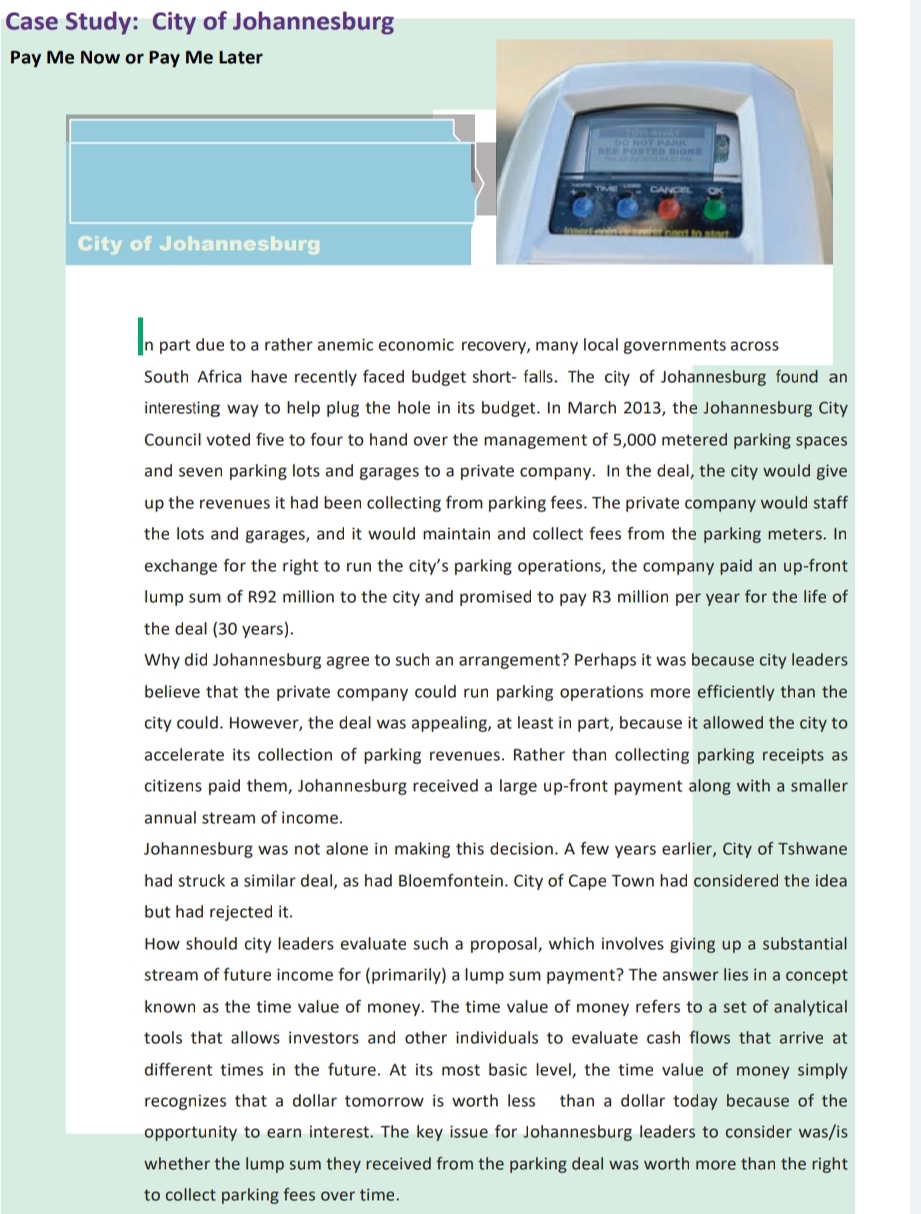Question
a. Make a case for the value drivers that merited the City of Johannesburg to agree to such an arrangement. b. By applying shareholder value
a. Make a case for the value drivers that merited the City of Johannesburg to agree to such an arrangement. b. By applying shareholder value analysis, predict the value that would have accrued to the City of Johannesburg if the city had not entered into such an arrangement given the credible information that the City of Johannesburg would have collected parking fees the following year of R6 million (net of operating costs), and those fees would have grown at a steady 3% per annum for the next 30 years. (10)c. Given the above case, propose the value drivers that the City of Johannesburg project managers could possibly influence? Explicitly support your proposition. (10)d. Given the case information, how would you classify the partnering arrangement and what obstacles and risks embodies this specific arrangement? Motivate. (10)e. Using 4% per annum returns to value the payments that the city was set to receive in thisdeal, do you think that the city made the correct decision? Why or why not?

Step by Step Solution
There are 3 Steps involved in it
Step: 1

Get Instant Access to Expert-Tailored Solutions
See step-by-step solutions with expert insights and AI powered tools for academic success
Step: 2

Step: 3

Ace Your Homework with AI
Get the answers you need in no time with our AI-driven, step-by-step assistance
Get Started


